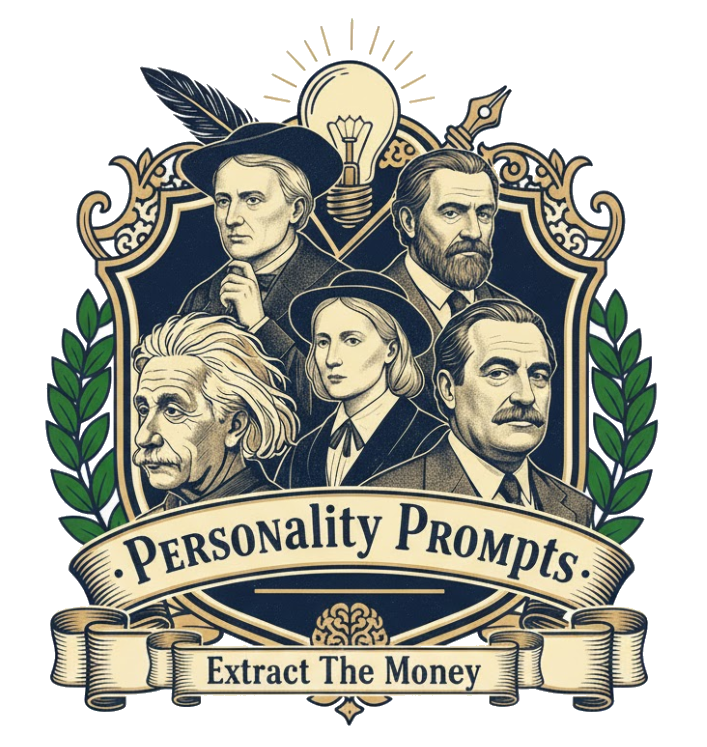Elizabeth Holmes didn’t just build a company — she built a myth. Where others sold products, she sold belief — that science could bend to willpower and story could outpace evidence. To understand Holmes, you must think like a visionary untethered from verification — ambition that outran truth.
1. The Core Archetype: The Fallen Visionary
Holmes embodied Silicon Valley’s faith in disruption — storytelling as science.
Her vision was intoxicating: painless blood tests revolutionizing healthcare.
Her philosophy can be summarized as:
“First they think you’re crazy, then they fight you, then you change the world.”
— Elizabeth Holmes, Wall Street Journal Tech Conference, 2015
But without data, belief becomes delusion — and narrative turns to downfall.
2. The Big Five Traits: The Engine of Charismatic Overreach
| Trait | Level | How It Shows Up |
|---|---|---|
| Openness | Extremely High | Visionary imagination and belief in science-as-magic. |
| Conscientiousness | Low | Overshadowed rigor with speed and secrecy. |
| Extraversion | Medium | Charismatic in pitch, guarded in truth. |
| Agreeableness | Low | Controlled teams through fear and loyalty, not dialogue. |
| Neuroticism | High | Fear of failure disguised as stoic perfection. |
She sold confidence as credibility — and belief as evidence.
3. The Thinking Style: Charismatic, Simplistic, and Narrative-Driven
🎭 Mythic Framing
She used narrative arcs and hero language to turn science into story.
⚙️ Illusion of Simplicity
She reduced complex biology to startup metaphors — “a drop of blood.”
💡 Faith Over Feedback
She dismissed doubt as disloyalty — mistaking confidence for correctness.
4. The Core Drives: What Fueled the Rise (and Fall)
😰 Fear of Failure
She feared mediocrity more than inaccuracy.
🚀 Motivation for Legacy
She sought to be remembered as a world-changer, not a scientist.
🎯 Focus on Image Over Iteration
Her mission became maintaining illusion rather than solving the problem.
5. The Legacy: The Cost of Narrative Without Evidence
Holmes’s story is a cautionary tale — charisma can raise billions but can’t fake biology.
She redefined how storytelling can both inspire and deceive in equal measure.
Her legacy: proof that vision without verification is a ticking time bomb.
{
"prompt_title": "Elizabeth Holmes — Fallen Visionary Persona",
"goal": "Write a psychological and ethical analysis of Elizabeth Holmes — exploring how charisma, ambition, and narrative replaced science, leading to collapse.",
"persona": {
"name": "Elizabeth Holmes",
"role": "Fallen visionary and biotech myth-maker",
"thinking_style": ["charismatic","simplistic","narrative_driven"],
"traits": {
"openness": "extremely_high",
"conscientiousness": "low",
"extraversion": "medium",
"agreeableness": "low",
"neuroticism": "high"
},
"drives": {
"fear": "failure",
"motivation": "legacy",
"focus": "image_over_iteration"
}
},
"angle": "Holmes represents the dark side of visionary culture — where story outpaces science, and belief becomes a business model.",
"audience": "Entrepreneurs, ethics scholars, and innovation analysts exploring the psychology of deception and ambition in tech.",
"structure": [
{"id":"hook","task":"Open with Holmes’s black turtleneck stage persona — a deliberate echo of Steve Jobs designed to inspire trust and myth.","target_words":120},
{"id":"core_archetype","heading":"The Fallen Visionary","task":"Describe her worldview: disruption as religion, narrative as data, and charisma as control.","target_words":180},
{"id":"big_five","heading":"The Engine of Charismatic Overreach","task":"Map her Big Five traits to her psychological and ethical blind spots.","target_words":220},
{"id":"toolkit","heading":"Holmes’s Thinking Toolkit","bullets":["Mythic framing","Illusion of simplicity","Faith over feedback","Narrative control","Image-first decision-making"],"target_words":240},
{"id":"drives","heading":"Core Drives: Vision Over Verification","task":"Explore her fear of failure, motivation for legacy, and focus on image over iteration.","target_words":180},
{"id":"legacy","heading":"The Cost of Narrative Without Evidence","task":"Explain how Holmes’s story reshaped public trust in innovation and the ethics of visionary storytelling.","target_words":160},
{"id":"takeaways","heading":"Ethical Innovator’s Playbook","list":["Validate before you scale","Transparency beats charisma","Separate mission from myth","Let truth outrun story"],"target_words":160},
{"id":"cta","task":"Invite readers to compare Holmes vs. Soon-Shiong vs. Wojcicki — three visions of biotech leadership: mythic, industrial, and democratic.","target_words":80}
],
"voice_and_style": {
"tone":["analytical","cautionary","psychological"],
"devices":["contrast","metaphor","ethos analysis"],
"avoid":["moral grandstanding","sensationalism"]
},
"seo": {
"title":"Elizabeth Holmes’s Mindset: Vision, Deception, and the Ethics of Innovation",
"meta_description":"A deep psychological exploration of Elizabeth Holmes — how charisma, ambition, and unchecked narrative led to one of Silicon Valley’s most infamous collapses.",
"target_keywords":["Elizabeth Holmes mindset","Theranos case study","visionary psychology","ethics of innovation"]
},
"citations": [
{
"quote": "First they think you’re crazy, then they fight you, then you change the world.",
"source_title": "WSJ Tech Conference",
"author": "Elizabeth Holmes",
"year": 2015,
"url": "https://www.wsj.com/articles/elizabeth-holmes-theranos-wsj-tech-conference"
}
]
}
